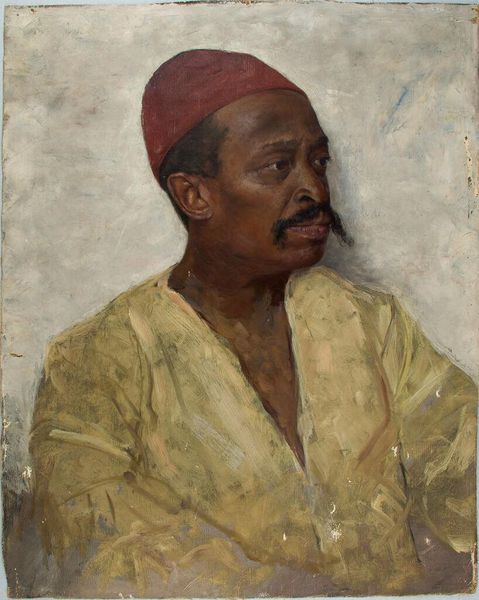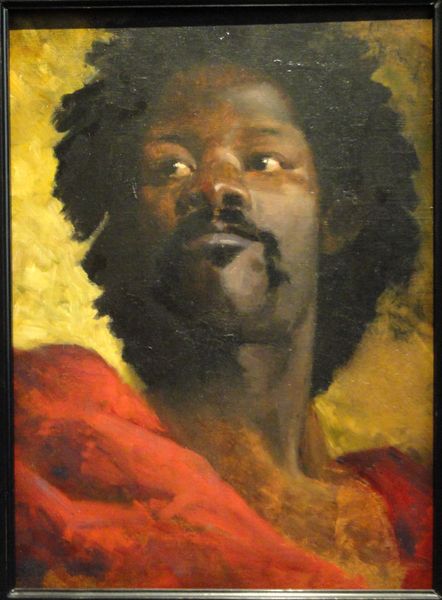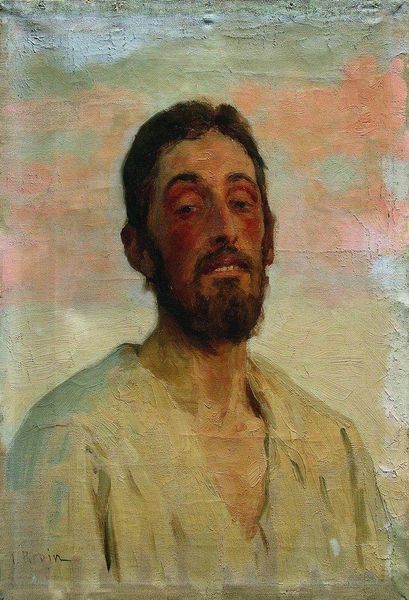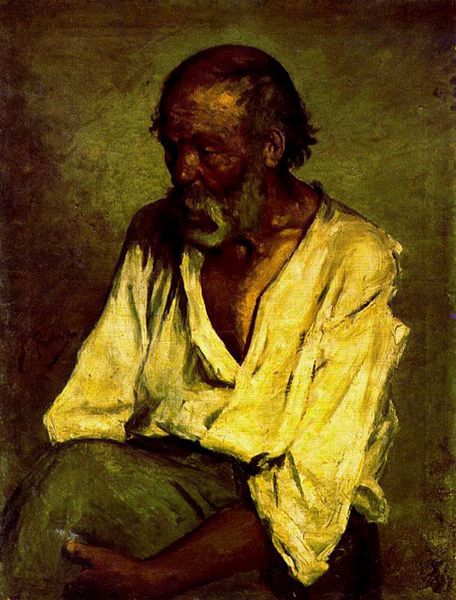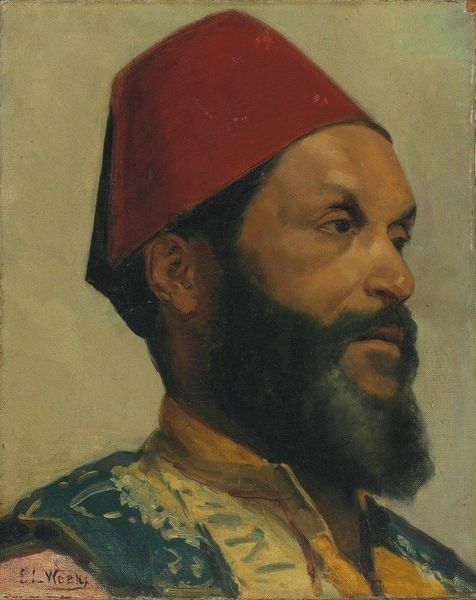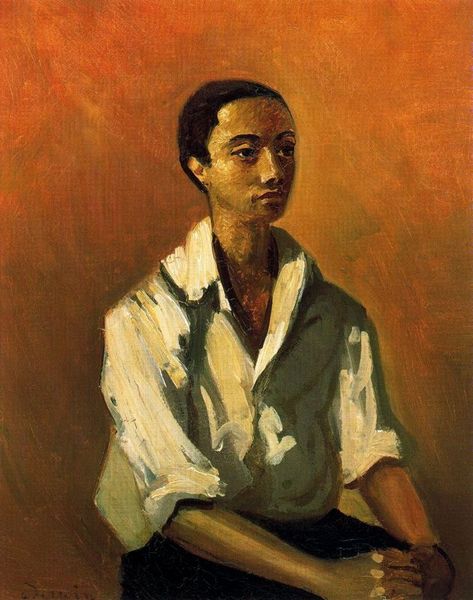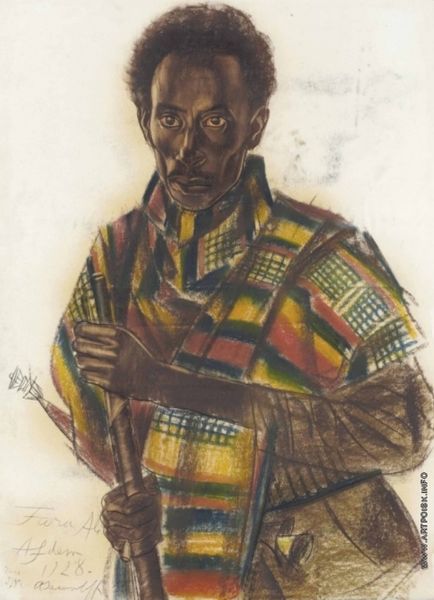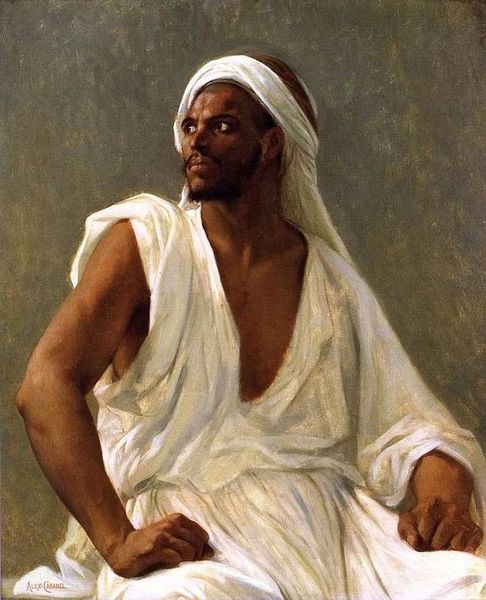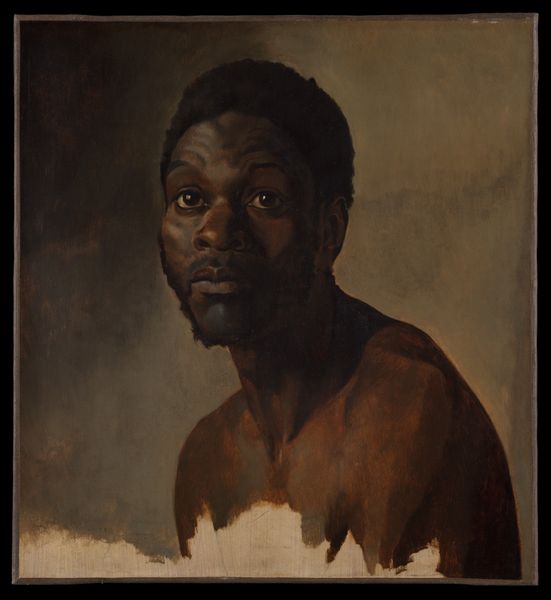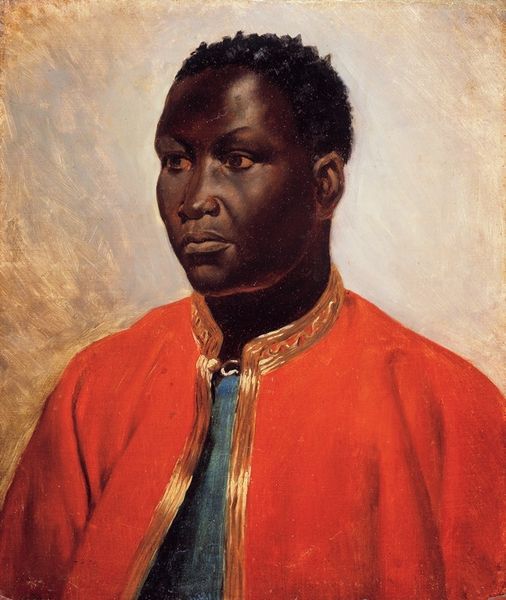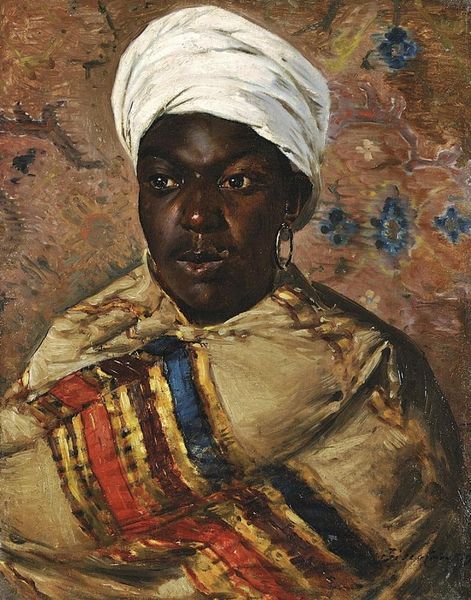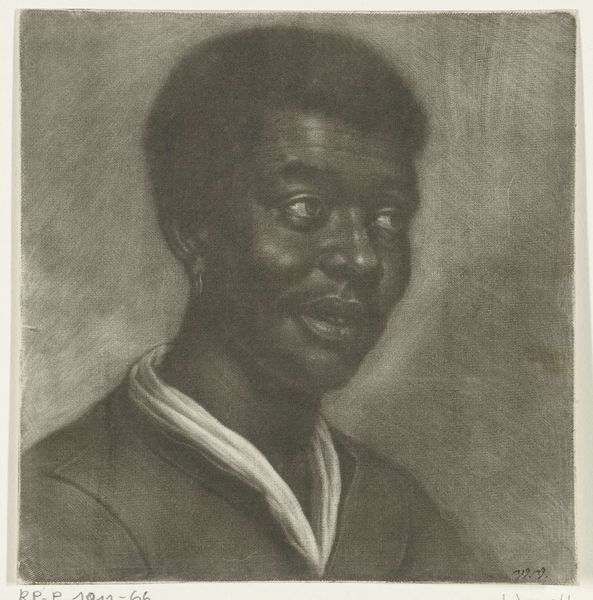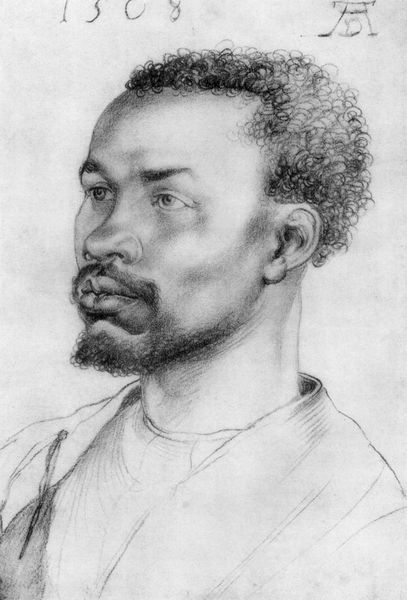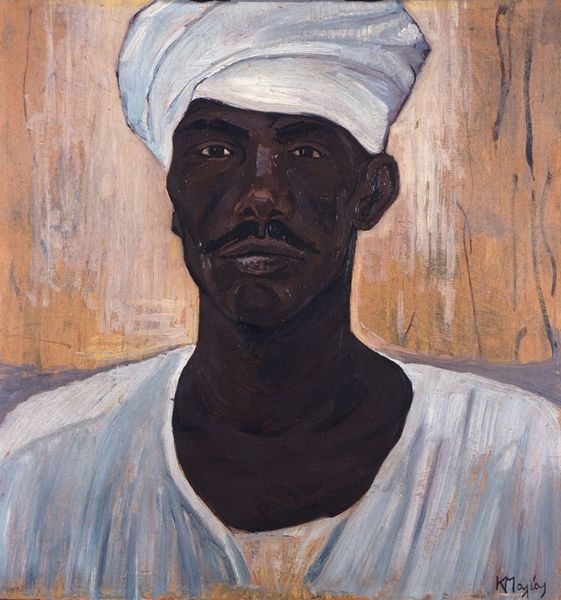
painting, oil-paint
#
portrait
#
painting
#
oil-paint
#
acrylic on canvas
#
portrait head and shoulder
#
orientalism
#
academic-art
#
realism
Copyright: Public domain
Curator: This is "African," an oil-on-canvas painting created in 1882 by Konstantin Egorovich Makovsky. Editor: There’s something undeniably vibrant about the red juxtaposed against the sitter’s skin. It commands attention immediately. Curator: Makovsky, a master of academic realism and orientalism, clearly focuses on the play of light and shadow across the subject's features. Note the precision in capturing the texture of the hair, the subtle gradations of color, the way the light catches in his eyes. Editor: But beyond the purely formal, we must consider the cultural context. This portrait, painted during a period of intense colonialism, is inherently freighted with the power dynamics of the time. What does it mean for a Russian artist to depict a Black subject in 1882? Is this portrait an attempt at representation, or appropriation? Curator: While acknowledging the historical backdrop is important, focusing solely on that risks obscuring the artist's technical skill. Look at the brushwork: each stroke contributes to a unified whole, demonstrating a mastery of the medium. Editor: Yet that very "mastery," if you will, also perpetuated an existing cultural hierarchy. Was the sitter paid fairly? What control did he have over his image? It is worth thinking about who this image benefits the most. Curator: Such questions are relevant, though perhaps unanswerable now. If we examine solely the visible data of brushstrokes, tonality, composition, we can appreciate Makovsky’s deft control in portraying the man before him. Editor: To focus exclusively on the technical brilliance, however, is to turn a blind eye to the complicated social narrative embedded within the artwork. We can reflect upon the work done—and left undone—toward more fair, equitable ways of seeing, depicting, and understanding humanity’s rich diversity. Curator: A balance is key—the artistic construction, along with the circumstances surrounding the production, can mutually exist in thought. Editor: Agreed. It gives us the tools to confront history head-on.
Comments
No comments
Be the first to comment and join the conversation on the ultimate creative platform.
